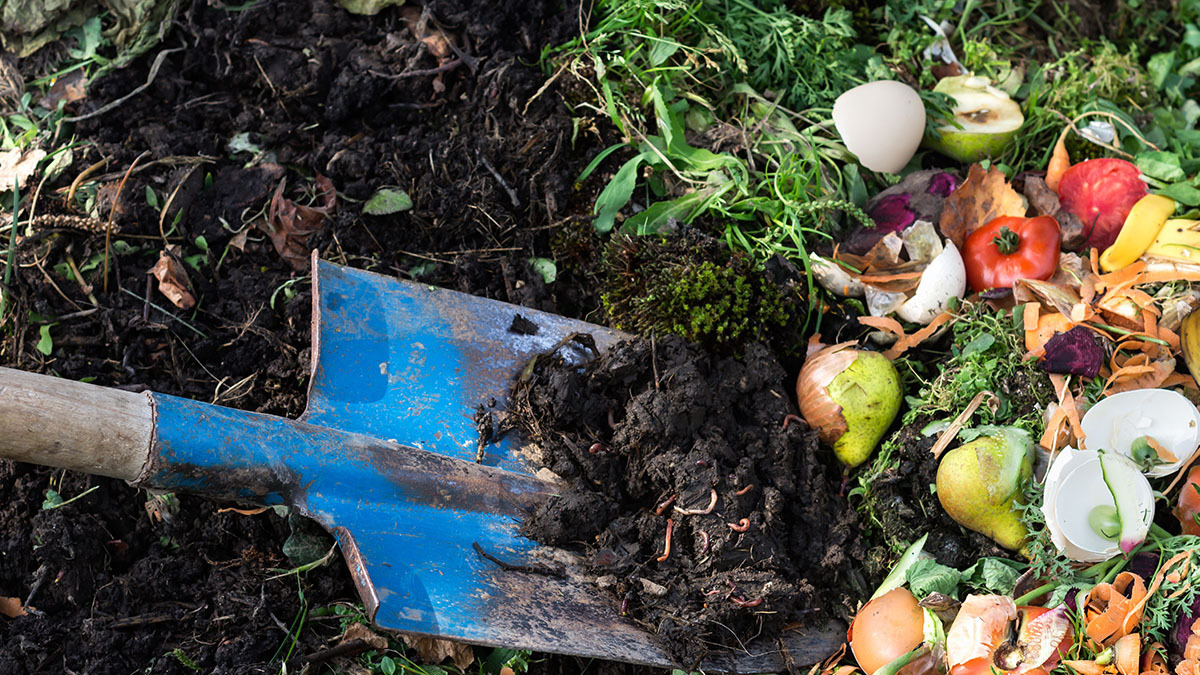Homesteading is all about self-sufficiency, and composting is a key component of that lifestyle.
Tuning your kitchen and yard waste into nutrient-rich soil will help save money on fertilizers and grow healthier plants.
The problem is, composting can be a smelly, messy business if not done properly. So, how do you create the best compost for your homestead?
Here are some tips and tricks to help you get started.
Know What to Compost
First things first, not everything organic from your kitchen should be composted.
Avoid tossing meat, fish, fats, and dairy into the compost pile because they easily attract pests and create unpleasant odors.
It’s best to stick to plant-based materials like fruit and vegetable scraps, eggshells, coffee grounds, leaves, and grass clippings.
Limit the amount of fruits and vegetables with high acidities, such as citrus fruits, pickles, and tomatoes. The acid content may kill the good bacteria in your compost pile and slow down its decomposition.
If you plan on adding compost to your worm bin, it might be best to avoid garlic, ginger, and onions. The best thing to do here is test and see what your worms do. If they stay clear of your scraps, then remove the garlic and onion.
Choose the Right Location
It’s critical you select the right location for your compost pile or bin.
The ideal location should be in a spot that receives partial sun, and it should be easy to access. You also want to make sure that the location is far enough away from your home to avoid any unpleasant odors.
Choose the Right Composting Method
There are several ways to compost, from traditional backyard bins to worm composting systems.
Choose a method that suits your space, time, and preferences. If you have a large homestead with plenty of outdoor space, a traditional bin or pile might work best. If you’re short on space or want a low-maintenance option, consider a worm bin.
[Related Read: How to Start a Worm Farm]
It’s about the Right Mix
Composting is all about creating the right mix of greens (nitrogen-rich materials like food scraps and grass clippings) and browns (carbon-rich materials like leaves and straw).
Aim for a ratio of 3:1 browns to greens to create a balanced compost that decomposes efficiently.
Keep It Moist
Composting requires moisture to work properly, but too much or too little can be detrimental.
If the pile is too dry, the materials won’t break down properly. On the other hand, if the pile is too wet, it can become compacted and anaerobic, leading to unpleasant odors.
Aim for a moisture level similar to a wrung-out sponge, and turn your compost regularly to mix in any dry or wet spots.
[Related Read: How to Make Garden Soil from Clay Soil]
Don’t Forget to Turn It
Aeration is essential to the composting process, so it’s important to turn your compost pile regularly.
This helps to mix the materials and provide oxygen to the microorganisms that are breaking down the waste.
Turn your pile at least once a week, using a pitchfork or a compost-turning tool.
You Got This
The best way to get started composting is to just start. It may take some trial and error to get it right, but with patience and determination, you’ll get it right.
Remember, composting is not an instant process. It can take several months for your pile to turn into rich, crumbly soil.
Be patient and trust the process. Avoid the temptation to add fresh materials to the pile before it’s fully composted, as this can slow down the process.

